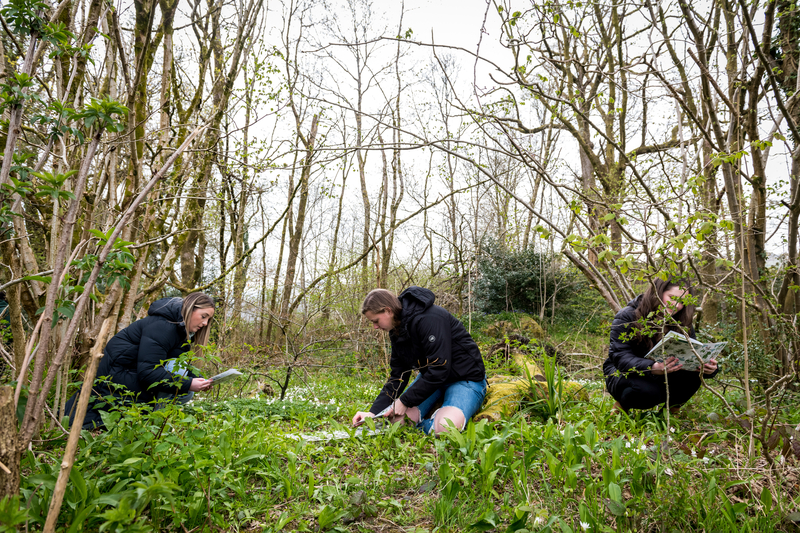BSc (Hons) - Ecology and Wildlife Conservation
Are you passionate about wildlife and committed to preserving our natural world? Do you want to be part of the solution to climate change and biodiversity loss? Our Ecology and Wildlife Conservation programme equips you with essential knowledge and practical experience to confront these global challenges.
Study with us at our Ambleside campus, located in the Lake District UNESCO World Heritage site, where you’ll have access to exceptional fieldwork and laboratory resources. Learn from passionate, research-active lecturers and gain firsthand experience working with conservation partners. This course provides over 180 hours of hands-on practical field and lab work to give you ecological, digital, and transferable skills aligned with industry standards.
Throughout this degree, you’ll participate in internships, placements, and volunteer activities with conservation organisations, building networks and skills to succeed in this rapidly growing field. With our support and extensive professional connections, you’ll be well-prepared for a fulfilling career in environmental conservation.

Course Overview
The course will help you build knowledge, understanding, practical experience, and both digital and transferable skills. You'll explore fundamental ecology, the processes driving global systems that impact all forms of life on Earth, and the scientific foundations of wildlife conservation efforts worldwide.
To enhance your hands-on learning, we offer excellent facilities, including dedicated laboratory spaces, a university-owned woodland, powerboats for exploring lake environments. Our established connections with local partners further enrich your course experience. In addition to these academic resources to support your studies, students in Ambleside have access to a variety of outdoor adventure equipment, allowing you to fully enjoy the stunning surroundings in your free time — once you’ve completed the necessary training, of course!
On this course you will...
- Develop in-depth knowledge and understanding of ecology and wildlife conservation to prepare you for a rewarding career in the environmental sector.
- Enjoy living and studying in our friendly and welcoming community amid one of the most beautiful and inspiring parts of the UK.
- Our internationally recognised research active staff bring cutting edge knowledge and partner perspectives to provide an exceptional, personalised university experience; informed by professional ecological standards and practices.
- The programme is designed to meet environmental professional standards (set out by CIEEM), and includes over 180 hours of high-quality practical activity in the field and laboratory.
- Opportunities to engage in professional development activity through volunteering, internships and sandwich placements with our extensive network of partnership organisations nationally and internationally.
- Great employment prospects – overall, 97.3% of UoC graduates are in employment or further study 15 months after graduation, ranking us 12th nationally (HESA, 2023).
Location
Ambleside Campus
Nestled in the Lake District National Park, a UNESCO World Heritage site, the Ambleside campus is the perfect place for world-savers, animal lovers, and adventurers. There is never a dull moment when surrounded by such natural beauty and opportunity.
Find out more
Find out more about studying with us
Attend an Open Day at Cumbria
An Open Day is your opportunity to explore one of 5 campuses, meet your lecturers, and find out how the University of Cumbria could become your new home.





